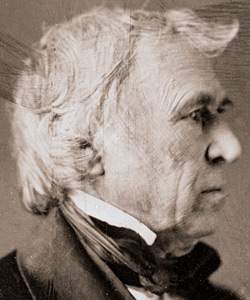Zachary Taylor (American National Biography)
Scholarship
As president, Taylor put national above sectional interests, usually made wise decisions, and always acted decisively. Because he tried to understand and deal fairly with both sections, he has often been described quite inaccurately as pronorthern. If Taylor had lived, he would probably have been reelected, and the course of American history might have been different. He has been a much underrated man and president.
Elbert B. Smith, "Taylor, Zachary," American National Biography Online, February 2000, http://www.anb.org/articles/04/04-00978.html.
Zachary Taylor, Election of 1848 (American National Biography)
Scholarship
In December 1847 a group of Whig congressmen, including both Abraham Lincoln and Alexander H. Stephens, organized a "Taylor for President Club" and ignited a national movement.
Besieged with questions, Taylor wrote revealing letters. He disliked political parties, he would spend no money, and he would become president only as a result of a "spontaneous move of the people." Slavery, he wrote, had been abolished in Mexico and could not be revived in the newly acquired territories. He owned many slaves, but he would respect the feelings and legal rights of the nonslaveholding states. The "intemperate zeal" of northern fanatics and southern politicians was making reasonable discussions impossible. The unnecessary and dangerous Wilmot Proviso against slavery in the new territories would shake the country. He still hoped, however, that compromises could be reached. Congress was responsible for legislation, and a president should veto laws only if they were clearly unconstitutional.
Besieged with questions, Taylor wrote revealing letters. He disliked political parties, he would spend no money, and he would become president only as a result of a "spontaneous move of the people." Slavery, he wrote, had been abolished in Mexico and could not be revived in the newly acquired territories. He owned many slaves, but he would respect the feelings and legal rights of the nonslaveholding states. The "intemperate zeal" of northern fanatics and southern politicians was making reasonable discussions impossible. The unnecessary and dangerous Wilmot Proviso against slavery in the new territories would shake the country. He still hoped, however, that compromises could be reached. Congress was responsible for legislation, and a president should veto laws only if they were clearly unconstitutional.
Elbert B. Smith, "Taylor, Zachary," American National Biography Online, February 2000, http://www.anb.org/articles/04/04-00978.html.




